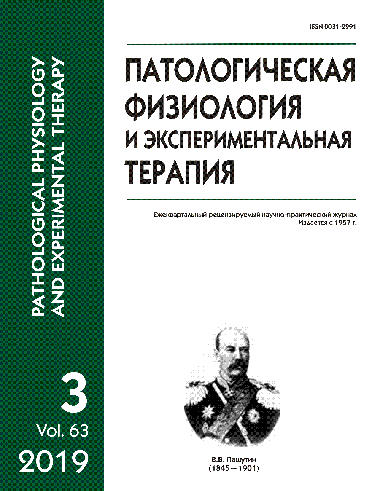Молекулярно-генетические механизмы мастоцитоза
Ключевые слова:
тучные клетки, мастоцитоз, SCF, рецептор c-Kit, мутации KIT, KIT D816V, PI3K–AKT, JAK-STAT, STAT5, MAPK
Аннотация
Мастоцитоз – группа редких клональных расстройств, характеризующихся аномальной пролиферацией и накоплением неопластических тучных клеток в коже и/или различных внутренних органах. Несмотря на гетерогенность клинической картины и прогноза подтипов заболевания, ведущее звено в патогенезе мастоцитоза занимают молекулярно-генетические дефекты. Практически у всех пациентов с мастоцитозом обнаруживаются мутации в нуклеотидной последовательности гена KIT, чаще всего в виде замены аспарагиновой кислоты на валин в кодоне 816. Данные дефекты наблюдаются как при формах, характеризующихся благоприятным прогнозом, так и при злокачественных подтипах заболевания. Наличие других мутаций, например, в генах TET2, SRSF2, ASXL1, RUNX1, и молекулярно-генетических изменений, вызванных ими, вносят вклад в клинико-патологическое разнообразие мастоцитоза и ассоциировано с более агрессивным течением заболевания. Понимание сложности молекулярно-генетических изменений при мастоцитозе необходимо для выбора наиболее эффективного метода лечения и разработки новых препаратов, способных улучшить прогноз у пациентов c мастоцитозом. В статье представлены основные патогенетические механизмы мастоцитоза. Рассмотрена роль мутаций в гене KIT, а также индуцированные мутациями изменения в рецепторе с-Kit и внутриклеточных сигнальных путях, ответственных за пролиферацию тучных клеток.Скачивания
Данные скачивания пока недоступны.
Опубликован
27-06-2019
Как цитировать
Шкурлатовская К. М., Орлова А. С., Силина Е. В., Синельникова Т. Г., Олисова О. Ю., Теплюк Н. П., Борзова Е. Ю., Дадаева В. А., Пятилова П. М. Молекулярно-генетические механизмы мастоцитоза // Патологическая физиология и экспериментальная терапия. 2019. Т. 63. № 3. С. 127–133.
Выпуск
Раздел
Обзоры













